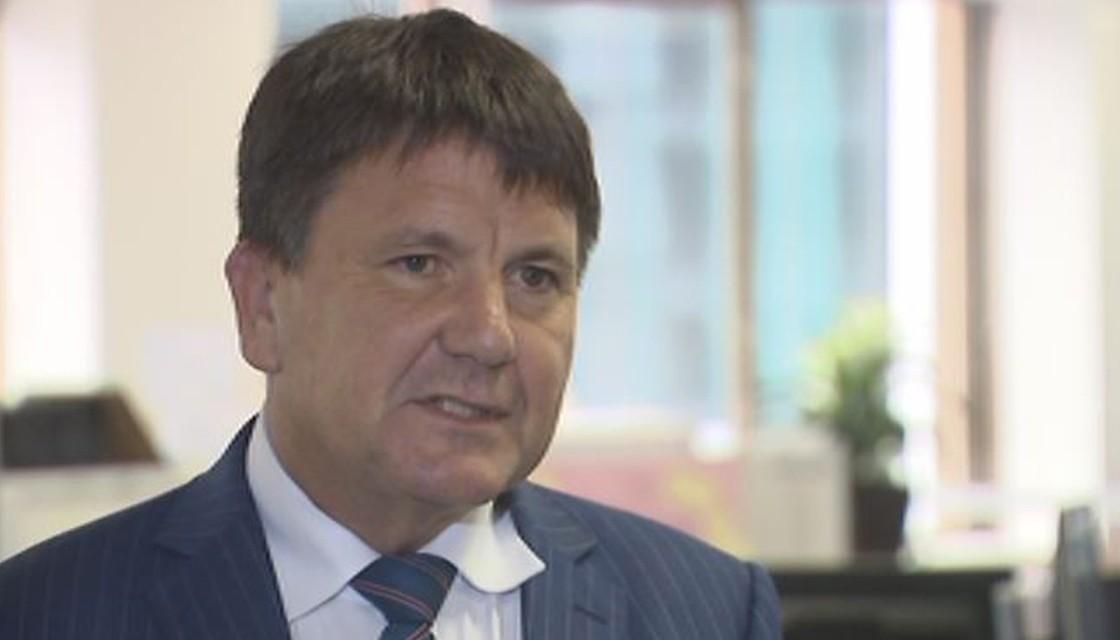The Privacy Commissioner is lashing out at a proposed law that would impose restrictions on returning New Zealanders involved in terrorism, describing it as "obnoxious".
The Foreign Affairs Committee heard from submitters on Tuesday on the Terrorism Suppression (Control Orders) Bill, also known as the "Mark Taylor law".
The second submitter, Privacy Commissioner John Edwards did not hold back, describing the legislation as "obnoxious", "fundamentally flawed", and an "affront to the principles of due process".
"It is my deep belief that this is an obnoxious piece of legislation and should not proceed," Edwards, whose role is to review laws that could impact privacy, told the committee.
He also described the proposed law as an "extraordinary and unprecedented intrusion on individuals' rights, privacy and liberty", in that people could have control orders imposed on them without sufficient evidence.
This proposal says we think you've committed a criminal act, but we can't prove it, so we need to lower the standard of proof
He implored the importance of "proof beyond reasonable doubt" in New Zealand's criminal justice system, pointing to a system whereby cases against individuals begin when the police or other prosecutor build a case.
"We have a system of criminal law of which terrorism offences are part, which requires the prosecution to bring their case to the criminal court to prove beyond reasonable doubt that the accused has committed the act.
"This proposal says we think you've committed a criminal act, but we can't prove it, so we need to lower the standard of proof."
The proposed law would give the police the ability to apply to the High Court to impose control orders, or restrictions, on New Zealanders suspected of engaging in terrorism overseas - ultimately leaving it up to a judge.
Edwards suggested people's rights could be trampled on under the new law because it's "hard to gather evidence from battlefields in Syria and put together a prosecution file".
He was referring to Mark Taylor known as the "Kiwi Jihadist", a New Zealander who lived with IS extremists in Syria for around five years, and earlier this year surrendered to local forces and was jailed in a Kurdish prison.
- Mark Zuckerberg admits Facebook scans some of the contents of your private Messenger
- Firearm Prohibition Orders to ban gangs and offenders from being around firearms
- A rushed law is a bad law.
- NZSIS 'unlawfully' helped Defence Force target journalist Nicky Hager's source
Taylor has said he wants to return home to New Zealand, and that became more of a possibility last month when hundreds of Islamic State prisoners escaped from a detention facility in Syria's northeast.
Justice Minister Andrew Little has insisted control orders will "only ever be imposed on a very small number of people", and wants New Zealand to be prepared should any high-risk Kiwi return home pending any prosecution for their offending.
He said last month the conditions imposed by the High Court will be "carefully tailored to the individual's personal circumstances, risks, and rehabilitative needs".
We are dealing with a hypothetical problem... this is speculative
Edwards is urging MPs not to rush the legislation, and to discuss it thoroughly with New Zealand's intelligence agencies, the Government Communications Security Bureau (GCSB) and Security Intelligence Service (NZSIS).
"We are dealing with a hypothetical problem... this is speculative," he said.
Edwards suggested the Solicitor-General Una Jagose, a former head of the GCSB, be consulted and ultimately determine if there is sufficient evidence to proceed with a standing order before it's imposed.
He said he understands the Government has a duty of care to protect New Zealanders, but said he's "not satisfied the case has been made" to implement the law as it is.
- Cyber attacks leave up to a million North Island patients medical data compromised
- Anti-terror measures vs digital freedom
- Special Operations Forces — Practicing Counter Terrorist Support
- New Zealand spies helped track down cyber-attackers on Australian Parliament
The Greens didn't support the Bill at first over similar concerns, describing it as "dog-whistling".
But late last month, Green MP Golriz Ghahraman said the party had negotiated that foreign convictions and deportations will not be accepted without "proper scrutiny".
She said the Greens also negotiated "ending the use of secret evidence without an advocate", meaning evidence against a suspect will not be secret and a lawyer, for example, would be able to see it.
Discussions between Labour and National over the law ended in a political stoush between Little and National leader Simon Bridges after their negotiations turned sour.
Edwards said the proposed law "intrudes" on the Privacy Act.






